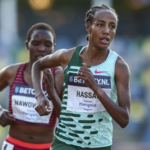Introduction to AFCON 2025
The Africa Cup of Nations (AFCON) 2025 is poised to be a landmark event in the realm of African football, drawing significant attention from fans, players, and stakeholders alike. Since its inception in 1957, AFCON has grown to become a vital tournament that showcases the best of African football talent, spirit, and competitiveness. Scheduled to take place in the Ivory Coast, this edition promises to deliver thrilling matches and unforgettable moments on the pitch.
The significance of AFCON extends beyond mere sporting excellence; it is a celebration of cultural unity and national pride among diverse African nations. The tournament offers an opportunity for countries to demonstrate their prowess in football, foster regional pride, and inspire the next generation of players. With the evolving landscape of football and increased investment in the sport across the continent, AFCON 2025 is anticipated to be a showcase of emerging talents and established stars, enriching the tournament’s legacy.
As AFCON 2025 approaches, discussions regarding predictions and favorites are heating up. The anticipation surrounding which nations will advance and who might emerge as the ultimate champion adds to the overall excitement of the event. With much at stake, the tournament promises to be a captivating display of skill, passion, and dedication, ensuring that the spirit of African football continues to thrive.
Key Contenders
As the anticipation builds for the upcoming AFCON 2025 tournament, several teams emerge as key contenders for the coveted title. Senegal, the reigning champions, will undoubtedly be a force to reckon with. Under the guidance of their experienced coaching staff, they boast a squad filled with talent, including players like Sadio Mané and Kalidou Koulibaly. Their strength lies in a solid defensive setup coupled with dynamic attacking flair, making them formidable opponents on the continental stage.
Morocco is another team to watch, having shown significant improvement in recent years. With a blend of youthful exuberance and seasoned professionals, Morocco’s style of play emphasizes technical proficiency and tactical discipline. Their headliners include Hakim Ziyech and Youssef En-Nesyri, both of whom have proven their abilities in top European leagues. Morocco’s recent performances in international matches highlight their growing potential, positioning them as serious contenders for the AFCON 2025 trophy.
Egypt, a historical powerhouse in African football, cannot be overlooked as a favorite. The Pharaohs will rely heavily on the brilliance of Mohamed Salah, who is not only a key player but also a source of inspiration for his teammates. Egypt’s tactical approach often revolves around a robust defense combined with quick counter-attacks, making them a versatile side capable of adapting to various match situations. Their historical success in AFCON further adds to their credentials as a team that thrives under pressure.
Nigeria, known for its rich footballing heritage, remains a consistent contender in the tournament. With a plethora of talented players such as Victor Osimhen and Wilfred Ndidi, Nigeria’s attacking prowess is coupled with a resilient midfield. Their aggressive style of play, often characterized by high-paced transitions, allows them to exploit opponents’ weaknesses effectively. Given their recent performances, Nigeria is poised to make a deep run in AFCON 2025, adding another chapter to their impressive football legacy.
Defending Champions: Senegal
Senegal enters the AFCON 2025 tournament as the reigning champions, having claimed their first title during the previous edition. The success has cultivated an air of expectation around their campaign, and fans are eager to see how the team will defend their title. The Senegalese squad boasts a blend of experienced players and emerging talents, providing a strong foundation for their title defense.
The team is led by a proficient coaching staff, spearheaded by the head coach, who has instilled a winning mentality within the squad. Their tactical approach emphasizes a fluid playing style, which combines disciplined defense with rapid attacking transitions. Critical to their strategy is the ability to maintain possession and capitalize on set pieces. Notably, star players like Sadio Mané and Kalidou Koulibaly are pivotal in executing these strategies, harnessing their international experience to guide their teammates through high-pressure situations.
Recent success on the international stage, including a strong performance in World Cup qualifiers, has buoyed the team’s confidence. However, they also face a range of challenges in their quest to retain the title. The increased competitiveness of other African nations, like Nigeria and Algeria, poses a legitimate threat, as these teams bring formidable talent and tactical expertise to the tournament. Furthermore, the burden of expectations can weigh heavily, potentially impacting player performance.
In preparation for AFCON 2025, Senegal must focus on squad depth to mitigate the risks of injuries and fatigue. Building unity among players and core strategies will be essential in navigating the tournament’s demanding schedule. By addressing these key areas, Senegal aims not only to defend their AFCON title but also to establish themselves as a dominant force in African football.
The Rise of Morocco
In recent years, Morocco has established itself as a formidable competitor in African football, culminating in a remarkable performance at the FIFA World Cup 2022. Their journey to the semi-finals marked a significant milestone for Moroccan football, showcasing not only their talent but also their resilience on an international stage. This outstanding achievement has set the stage for Morocco’s ambitions heading into the Africa Cup of Nations (AFCON) 2025.
Central to Morocco’s success is a roster laden with skilled players who have made their mark in top European leagues. Key figures such as Achraf Hakimi, a versatile right-back with exceptional pace and offensive capabilities, and Youssef En-Nesyri, a potent striker known for his aerial prowess and finishing skills, are vital to the team’s attacking play. Additionally, the midfield is anchored by seasoned professionals who excel in controlling the tempo of the game, including Sofyan Amrabat, whose defensive work rate and tactical intelligence have been pivotal in both club and international contexts.
The coaching philosophy under Jalel Kadri has also contributed significantly to Morocco’s rise. Kadri emphasizes tactical flexibility, encouraging players to adapt to various match situations, enhancing their competitiveness. His approach prioritizes quick transitions, exploiting the width of the pitch, and maintaining possession, which reflects the evolving dynamics of modern football. Moreover, building a cohesive team spirit and instilling a strong sense of national pride has galvanized the players, making them an even more cohesive unit on the field.
Morocco’s recent performances and robust footballing ideology position them as strong contenders for AFCON 2025. Their blend of individual talent, tactical prowess, and a unified team spirit will be key elements to watch as they aim for success in the prestigious tournament.
Egypt: Historical Giants
Egypt has long been recognized as one of the giants of African football, with a rich and storied history within the Africa Cup of Nations (AFCON) tournament. As the most successful nation in AFCON history, with seven titles to their name, the Pharaohs have established a legacy that continues to influence the continent’s football landscape. The journey toward the 2025 tournament has not only highlighted Egypt’s historical achievements but also emphasized their determination to reclaim the title and further engrain their legacy.
In analyzing the current squad, Egypt boasts a mix of experienced players and emerging talents, providing crucial depth ahead of the anticipated AFCON 2025 competition. Key figures such as Mohamed Salah, who has been instrumental in both club and international performances, symbolize the team’s high ambitions. The synergy among seasoned players who have navigated high-pressure situations internationally adds to the squad’s overall resilience. This combination of youth and experience enhances their chances of success in the upcoming tournament.
As the Pharaohs embark on their quest to restore themselves at the pinnacle of African football, strategic planning and tactical executions will be pivotal. The coaching staff is expected to leverage the wealth of experience within the squad, focusing on cohesive team dynamics and adaptability when faced with various styles of play. Furthermore, the influence of Egypt’s rich football history will serve as both inspiration and motivation for the players, aiming to rekindle the spirit that has made them a formidable force.
With their historical credentials and a well-rounded team, Egypt’s preparations for AFCON 2025 exhibit promise. The nation’s football stakeholders, fans, and analysts alike will undoubtedly watch closely as they endeavor to reclaim their title, reaffirming their status as the kings of African football.
Nigeria’s Attack: Powerhouse Potential
Nigeria’s football heritage is rich and celebrated, characterized by a dynamic and attacking style that has consistently produced some of the finest talents in the sport. The Super Eagles have long been a formidable presence on the African football scene, and as they head into AFCON 2025, their attacking prowess will be at the forefront of discussions regarding their potential success in the tournament. With a wealth of experience and youthful exuberance, Nigeria’s attack presents a unique blend that can unsettle any opponent.
The Super Eagles boast an array of gifted forwards, including the likes of Victor Osimhen, who has made a significant impact in European football. His pace, technical ability, and goal-scoring acumen make him a critical asset for Nigeria, capable of turning matches in his favor. Complementing him is Samuel Chukwueze, another exciting talent known for his dribbling skills and creativity on the wing. Together, these players represent just a glimpse of Nigeria’s depth in attacking talent, with a pipeline of emerging stars demonstrating the nation’s commitment to nurturing top-tier footballers.
For Nigeria to maximize its attacking potential, employing an adaptive tactical setup is essential. Coach José Peseiro will need to focus on balancing possession with incisive counter-attacks, leveraging the speed and agility of its forwards. Utilizing a formation that allows for fluidity in transitions, perhaps a 4-3-3 or 4-2-3-1, could be beneficial. It’s also crucial for midfielders to provide the necessary support, creating spaces and opportunities for the forwards to exploit. With effective communication and cohesion, Nigeria’s attack holds the potential to be one of the most feared in the tournament. As the preparations for AFCON 2025 unfold, the Super Eagles will be keen to harness their attacking strengths and deliver impressive performances on the continental stage.
Dark Horses to Watch
As the African Cup of Nations (AFCON) 2025 approaches, several teams are emerging as dark horses in the tournament. Traditionally, the spotlight has been on powerhouses like Egypt, Nigeria, and Cameroon. However, teams such as Mali, South Africa, and Gambia are showcasing significant improvements and could produce surprises on the grand stage.
Mali, with their strong youth development programs, has seen a surge in talent. Players like Amadou Haidara and Ibrahima Koné have become pivotal figures, demonstrating both skill and determination in recent international fixtures. Their performance in the qualifiers has instilled a newfound confidence. Furthermore, Mali’s tactical flexibility under their head coach allows them to adapt to various opponents, making them a formidable contender capable of disrupting established teams.
South Africa also stands out as a potential dark horse. Despite underperforming in past tournaments, recent coaching changes and a renewed focus on strategic gameplay have revitalized the squad. The likes of Percy Tau and Teboho Mokoena have showcased their potential to change the course of a game with their attacking prowess. The team’s emphasis on youth integration into the senior squad presents a fresh dynamic that might yield unforeseen results in AFCON 2025.
Gambia, ranked among the rising nations, has been capturing attention since their strong showing in the recent Africa Cup of Nations. Players such as Alieu Fadera and Modou Barrow have been instrumental, not only through their individual performances but also by embodying a resilient team spirit. Gambia’s collective approach and ability to upset more fancied opponents could make them a surprise package, should they replicate their previous success.
The unpredictability of these teams adds excitement to the tournament. In the realm of international football, especially at AFCON, the ability to perform beyond expectations can turn dark horses into serious contenders, making their journey through the tournament one to watch closely.
Breakout Stars to Look For
The Africa Cup of Nations (AFCON) 2025 promises to showcase a plethora of emerging football talents who are expected to make a significant impact on the tournament. Among these players, Pape Matar Sarr, Anass Zaroury, and Victor Boniface stand out as potential breakout stars, each bringing their unique style of play and promising skills to the forefront of international football.
Pape Matar Sarr, a midfielder hailing from Senegal, has impressed many with his extraordinary vision and technical abilities. Having made his mark in European leagues, he is known for his capacity to control the game’s tempo and create goal-scoring opportunities for his teammates. At just 20 years old, Sarr’s strong performances for both his club and country have drawn the attention of football enthusiasts globally. His role in Senegal’s midfield during the tournament could be pivotal, potentially determining their success in AFCON 2025.
Another notable player is Anass Zaroury, who represents Morocco and plays as a winger. Zaroury has gained popularity for his speed, dribbling skills, and ability to cut inside to take shots on goal. His recent performances in club football have established him as a rising star to watch. His contribution to Morocco’s attacking prowess could be crucial, especially in key matches where creativity and quick decision-making are paramount.
Finally, Victor Boniface from Nigeria is a forward whose blend of strength and agility sets him apart. Having proved himself in European competitions, Boniface’s ability to find the back of the net consistently makes him a significant threat for opposing defenses. If he can maintain his form and confidence, he could play a critical role in Nigeria’s quest for glory in AFCON 2025. The combination of these talents heralds an exciting tournament as they look to make their mark on the continental stage.
Tactical Trends for AFCON 2025
The Africa Cup of Nations (AFCON) 2025 is anticipated to showcase a variety of tactical trends that reflect the evolving nature of football on the continent. As teams prepare for this prestigious tournament, two prominent strategies are likely to emerge: high-pressing systems and compact defensive setups. These approaches not only define how teams will structure their play but also influence match outcomes significantly.
High-pressing systems have gained traction globally and are expected to be a hallmark of AFCON 2025. Teams employing this tactic will look to engage their opponents immediately upon losing possession, applying pressure in their defensive thirds. This style aims to force turnovers in dangerous areas of the pitch, creating scoring opportunities almost instantaneously. Such an aggressive approach can unsettle opponents, particularly those not accustomed to intense pressure. Each participating nation will need to assess its fitness levels and squad depth to maintain the high-energy demands of this strategy throughout the tournament.
On the other hand, compact defensive setups aim to create a solid structure that limits offensive threats from the opposing teams. These formations typically feature closely-knit defensive lines that focus on maintaining shape and denying space to attackers. By prioritizing organization and discipline, teams can absorb pressure and quickly transition to counter-attacks. The effectiveness of a compact defense often relies on the understanding and communication among defenders and midfield players, which can be crucial in tight knockout scenarios characteristic of the AFCON.
As teams implement these tactical trends, the AFCON 2025 tournament could witness a fascinating battle between attacking flair and defensive resilience. The ability of teams to adapt and execute these strategies effectively could very well determine their success in this high-stakes competition. Understanding these trends will be essential for fans and analysts alike as they seek to predict the dynamics of each match.
Predicted Winner and Conclusion
As we look ahead to the Africa Cup of Nations (AFCON) 2025, the anticipation surrounding this prestigious tournament is palpable. Based on the analysis of recent performances, squad depth, and the overall dynamics of African football, Senegal emerges as a strong candidate for the championship title. The Senegalese national team boasts a well-rounded squad that includes experienced players and exciting young talents, enabling them to compete at the highest level. Notably, their recent success in international competitions has further cemented their reputation as a formidable force in African football.
Senegal’s blend of skillful forwards, creative midfielders, and solid defenders provides a balanced approach to both offensive and defensive play. Stars such as Sadio Mané and Kalidou Koulibaly, alongside emerging talents, contribute to a cohesive unit capable of overcoming tough competitors. Moreover, the team’s recent triumphs, including a stellar performance in previous AFCON tournaments, exhibit their readiness to secure another title and fortify their standing in African football history.
However, the unpredictability of AFCON cannot be overlooked. Historically, this tournament has been known for its surprises, with underdog teams sometimes rising to prominence. Nations like Algeria, Nigeria, and Ivory Coast have rich football legacies and possess the potential to challenge Senegal’s prospects. The fervor and intensity of matches often lead to unexpected results, illustrating that while Senegal may be favored, the tournament remains open to a variety of outcomes.
In summary, while Senegal stands out as a likely champion of AFCON 2025, the tournament’s inherent unpredictability suggests that surprises are always around the corner. Fans and analysts alike will anxiously await the unfolding of matches, as they witness the excitement and drama that African football always delivers.









Leave a Reply